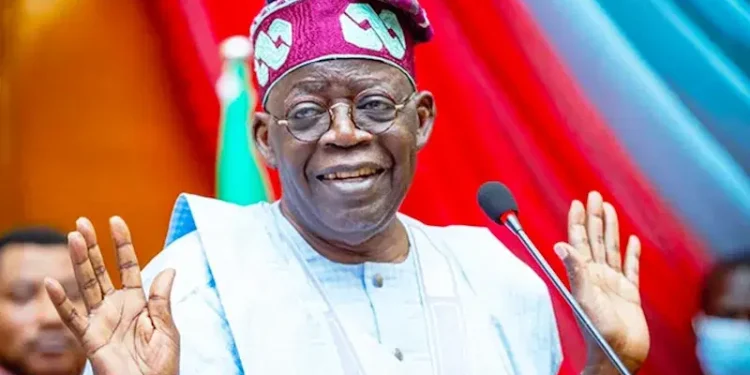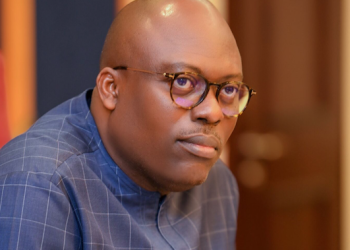By Ike Abonyi
“State capture is a cancer that eats away at the heart of good governance, leaving only corruption and decay in its wake”- Anonymous.
One can imagine the kind of behaviour exhibited by politicians in the time of the iconic French military General, Napoleon Bonaparte, that made him leave a durable statement that ‘in politics, stupidity is not a handicap’. Meaning that the stupidity of a person cannot make him deficient in a political environment; instead, it could even be a virtue. If you have been closely related to politicians as I have been privileged to, especially when they are on top of their game towards an election, you may not find any point to make you disagree with Napoleon. Today is June 12, we are celebrating a jaundiced democracy day distinct from the event of 32 years ago when Nigerians set aside their ethnic, religious and regional interests to cast their votes for competence and capacity for the job.
But today watching the ruling APC governors and their National Assembly members recently, amid the harrowing situation in the land, endorsing Bola Ahmad Tinubu as their sole candidate for 2027 two years away, and also the Senate President Godswill Akpabio publicly and shamelessly singing the President’s praises lately plus the recent disgusting and nauseating defection drama from PDP to APC in Delta and Akwa Ibom states, one cannot but agree with Napoleon that clowning, and unbefitting behaviours are no disability in politics. You take political players seriously at the peril of your health. If you take politicians seriously you might live your life perpetually in anger and bitterness. Yet it’s from them that statesmen emerge. The burning question then is, Why should nations leave their future in the hands of pretentious persons, charlatans and hoodwinkers operating in the name of democracy? These are the contradictions in politics that throw a lot of people into confusion. Politics, they say, is too serious to be left for idiots and knuckleheads, but the environment is never welcoming to good heads and geniuses. What do one make of the ongoing feud between Donald Trump and Elon Musk, whom he brought to create the Department of Government Efficiency, DOGE? This is a Donald Trump who was found guilty of all kinds of crimes in the United States, but he still emerged as President of the United States. Bola Ahmad Tinubu had all the baggage you can think of, but he has been Nigeria’s President for two years now and is already designing how to stay in power longer. How does one reconcile that a critical career in the life of human beings is crowded by nitwits and goons?
A few years ago, I had watched in disbelief as the then-Governor of Zamfara state, now Minister of State for Defence, Bello Mattewalle, swore publicly that Allah should punish him if he ever leaves PDP, his then political party, for any other party. But soon after that, he left the PDP for the APC and sought a second term, but lost ostensibly by Allah’s intervention, but he has been in the power corridor deviously ever since. For him and people like him, as found in Governors of Akwa Ibom, Pastor for that matter, Eno Bassey and Delta State’s Sheriff Oborewori, their god is their stomach, and they are ready to go anywhere it directs them, even if it’s eventually into hell.
Characters like these are the willing tools that are handy for the enthronement of evil in society. The cry of the people means nothing to them; they hear only the language of their stomach and like flies, they follow rotten items to the dustbins. For such people, their legacy is determined by their greed. They are deaf to reason or to the bemoaning of their people.
They are willing tools for state capture which they need since they cannot go through the people to remain in power. In them, you see that intense and selfish desire for wealth and power. In them, you also notice that avarice has an uncanny way of blocking reasoning and a sense of history. Otherwise, these sycophantic defectors should have known that as a nation, we had passed through this road before, and it didn’t end in victory for them.
In 1997, virtually all Nigerian politicians collapsed their interests and their political party structure into one for a serving military Head of State, Gen Sani Abacha, begging him to agree to remove his khaki and put on an agbada to continue in office as a civilian President. At the time, the politicians were doing this, Gen Abacha was rated as one of the worst leaders in the World, and Nigerians were held captive, yet the politicians wanted him for their selfish gains.
The rest of the story about Abacha is now history except to say that the captor did not have his way despite conquering everybody. Meaning that no matter the weight of power in someone’s possession, there will always be an ultimate beyond human calculation.
Nigeria today appears to have arrived at a similar junction again. Bola Ahmad Tinubu’s government empirically is turning out to be one of the worst in our contemporary times, yet, like in Gen Abacha’s days, traffic to his door is jam-packed with politicians struggling to enter. It does not matter to them how their people feel, or what they desire, the only person worth listening to is the man believed rightly or wrongly to be holding the proverbial knife and yam, the captor of the state, in this instance President Tinubu and his ruling APC. To this school of thought, it doesn’t look feasible that anybody within Nigerian territory can be anything politically without going through Tinubu or the APC.
The concept of politics of elites without their people, which is prevalent in Nigeria today, refers to a system where political elites prioritise their interests over the needs and desires of the general population. This phenomenon often undermines democratic principles and tries to perpetuate power imbalances. In such circumstances, the elite in their dominant characteristics become detached from the concerns and values of the general population, leading to policies that don’t serve the greater good. They engage in self-serving decision-making that benefits themselves or their group, rather than the broader community.
The elites prioritise the interests of their group or class, rather than representing the diverse needs and perspectives of the population.
State capture, as witnessed in the country ahead of 2027, is a significant and persistent issue in Nigerian politics and is widely recognised as a major impediment to democratic consolidation, economic development, and good governance. Under our watch, powerful individuals, institutions, companies, or groups are illicitly influencing the formation of laws, policies, and regulations to serve their interests, rather than the public good.
We are all watching copiously and helplessly as all the characteristics of state capture are being put in place, and how political barons are deploying their money and influence to gain control over the decision-making organs of political parties, both ruling and opposition. They are scheming to install their cronies and stooges in key positions and influence electoral outcomes.
Electoral manipulations through monetised and often violent elections are a direct consequence of state capture, as politicians deploy significant looted resources to secure undeserved victory, disregarding electoral laws. They do this through vote-buying, rigging, and falsification of votes etc. They deliberately exert undue influence over state institutions, like the judiciary, legislature, and regulatory bodies, compromising their independence and impartiality.
We are also at the stage where public institutions like security agencies and revenue-generating bodies, are used to intimidate citizens. One significant phenomenon of state capture is that it breeds dictatorship, as witnessed by the growing power of President Tinubu in his unilateral action in the declaration of a state of Emergency in Rivers state and the muscling of the legislature and Judiciary to play along.
One clear impact why every lover of democracy should worry about the developing situation is that state capture compromises Nigeria’s democratic space as it short-changes people’s electoral powers and distorts policy formulation. It makes it difficult for opposition groups to challenge the government and discourages individuals from exposing misconduct. With such situations, governance will suffer, there will be economic stagnation, limited opportunities and unequal distribution of resources
The rule of law is already being undermined as loyalty is shifting from the constitution to the person who makes political appointments and who often exhibits executive recklessness and nepotism. Visibly before us already are all ingredients of a failed and jaundiced democracy, and we didn’t get to this stage in the past when democracy collapsed. Ghana didn’t get to this bad situation when Jerry Rawlings came and put that country on the right path to date. Burkina Faso didn’t get to this stage when the man of the moment, Ibrahim Traore, arrived to clean up the mess and redefine African leadership. Nigeria as a country is currently at that junction, and the cry of Nigerians is reaching high heaven that the democracy of state capture is a superhighway to dictatorship, which must not stand.
What is obvious in our polity going forward is that state capture is deeply entrenched in our polity today, and it’s responsible for the provocative defections and endorsements the political elites do without factoring in their people’s interests. These insensitive and utterly selfish actions that are hindering progress, exacerbating societal challenges and endangering the people’s survival should be a universal crime before God and man. Therefore, on this day, June 12, 2025, we must decide if this brand of democracy that is being bequeathed to us by Tinubu and his team is our choice, if not, what is next? God have mercy.
*Abonyi is a veteran journalist, author and public affairs analyst.








